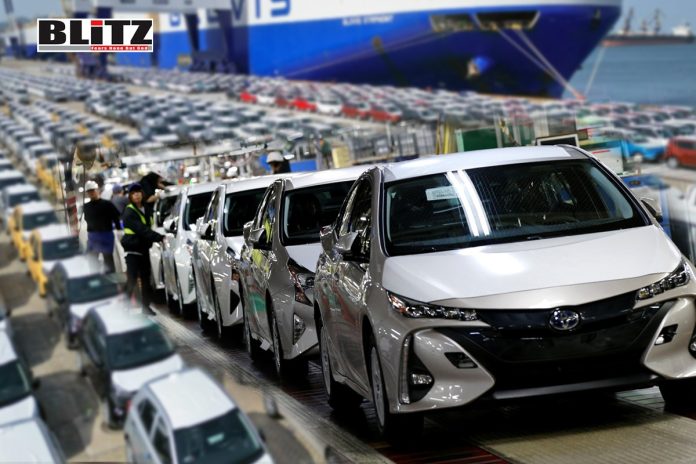US President Joe Biden’s recent remarks on national security risks associated with Chinese-made vehicles have sparked discourse on the perceived threats posed by foreign automotive imports to American interests. However, beneath the surface of these assertions lies a complex narrative of protectionism and geopolitical maneuvering that merits closer scrutiny. The purported concern for national security may, in fact, serve as a thinly veiled pretext for safeguarding domestic economic interests, especially within the US auto industry.
The discrepancy between the prevalence of American cars dominating Chinese thoroughfares and the conspicuous absence of Chinese-made vehicles on American streets illuminates a profound dissonance in market access and trade patterns. While American automakers thrive within the expansive and profitable Chinese market, their Chinese counterparts encounter substantial obstacles, such as formidable barriers and tariffs, when seeking entry into the US market. This glaring incongruity serves as a catalyst for critical examination of the equity and mutuality within international trade relationships, compelling an exploration of the underlying motivations behind the implementation of protectionist policies.
The purported justification for addressing “national security risks” linked to Chinese-produced “connected vehicles” adds an additional dimension of intricacy to the ongoing dialogue. While valid apprehensions surrounding data security and privacy deserve attention, merging these concerns with broader economic protectionism threatens to oversimplify a multifaceted issue. The reflexive response to scrutinize Chinese-manufactured components within vehicles portrays a reactive stance rather than a proactive one toward confronting genuine security apprehensions. Such a reactionary approach may inadvertently neglect nuanced solutions capable of reconciling security imperatives with economic interests in a more balanced manner.
Furthermore, the timing of these initiatives elicits skepticism regarding their political opportunism, especially given the proximity to another election cycle. Swing states boasting substantial blue-collar demographics, including Michigan, Ohio, and Pennsylvania, once more assume pivotal roles in political discussions, with the automotive sector emerging as a central battleground for conflicting narratives and electoral tactics. The invocation of national security apprehensions conveniently serves as a rallying point to mobilize backing for protectionist policies, ostensibly aimed at preserving American jobs and industries. However, beneath the veneer of safeguarding national interests, lurks a strategic maneuvering aimed at securing political advantage and appeasing influential constituencies.
However, the inherent shortsightedness embedded within such protectionist policies poses a significant risk to the long-term viability and competitive edge of the US automotive industry. In an era where the global marketplace is increasingly interconnected, the inclination towards isolationism presents a tangible threat to innovation and economic progress. The admonition articulated by The New York Times serves as a stark reminder of the dangers associated with regressing into a state characterized by outdated automotive practices. It underscores the imperative of embracing competition and fostering an environment that nurtures innovation, thereby ensuring the sustained global competitiveness of the American auto sector.
Certainly, China’s remarkable rise in the electric vehicle domain stands as a testament to the profound impact of competition and innovation. Through its receptivity to foreign investment and proactive embrace of emerging technologies, China has solidified its status as a formidable player within the global automotive arena. American automakers would be wise to heed this example, understanding that fostering a culture of collaboration and adaptability is paramount for success in navigating the ever-evolving dynamics of the 21st-century automotive industry. By embracing a similar mindset, American manufacturers can position themselves competitively and capitalize on the opportunities presented by a rapidly changing landscape.
In summary, the invocation of “national security risks” within the framework of the US auto industry underscores a broader agenda rooted in protectionism and political expediency. Rather than yielding to isolationist inclinations, the United States must prioritize the cultivation of competition and innovation as fundamental drivers of economic growth and resilience. By fostering an environment that encourages collaboration and investment, American automakers can capitalize on their inherent strengths to effectively navigate the intricacies of the global marketplace. Through such proactive measures, they can fortify their position as trailblazers within the automotive industry, securing long-term leadership and sustainability amidst an ever-changing landscape of challenges and opportunities.




